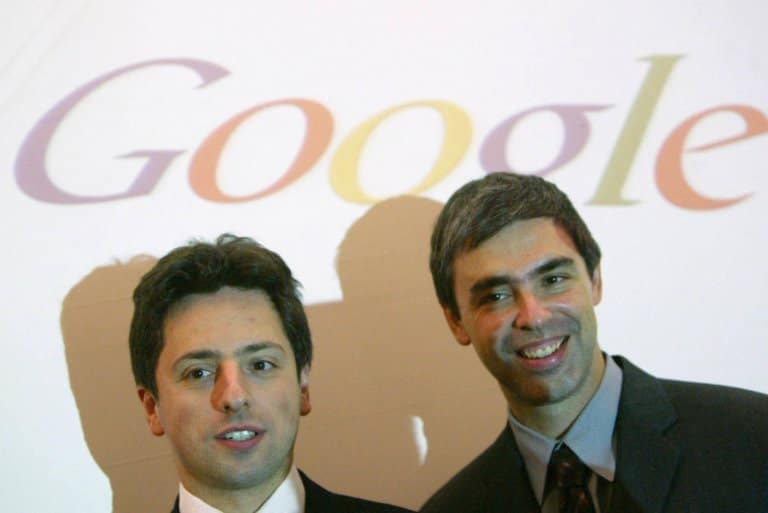
Genius, billionaire, playboy, and philanthropist Tony Stark may have impressed the Marvel Cinematic Universe with his flying suits and discovered its strongest metal vibranium, but it’s young entrepreneurs who are making waves in the real world.
Think of the tech juggernauts of today, like Google, Facebook, or Reddit. All share one thing in common — each was started in a university dorm room by a bunch of college students.
Larry Page and Sergey Brin, for example, laid the foundation for the most powerful search engine in the world when they were two PhD students at Stanford University.
The inventions of this era’s young entrepreneurs revolutionised our world — and inspired millions along the way.
A 2022 survey found around three out of five teenagers prefers to start their own business instead of taking on a traditional job.
The Junior Achievement USA survey also found that two in five teens say they’re inspired to be entrepreneurs by influencers and celebrities.
More than one in three said they’re interested in programmes at or after school on entrepreneurship — like these two students below who co-founded a student-led consultancy group at EHL Campus (Singapore).

EHL students and young entrepreneurs together with Greta Rocchi (Executive Assistant, Project Management, Mandarin Oriental Hotel Group) and Philipp Knüpfer (General Manager at Mandarin Oriental Hotel Group (Singapore)). Source: ECSC
EHL Student-Led Consultancy: Collaborating with hospitality leaders
Tassilo Ritter Kempski Von Rakoszyn and Rony Martin co-founded EHL Student Consultancy Singapore (ESCS) to get EHL Campus (Singapore) involved in Southeast Asia’s hospitality market.
“We want to drive collaborations with hospitality leaders to enable students to apply their knowledge and skills to real-world projects while shaping the industry into a more dynamic, disruptive and data-driven version of itself,” the duo tells Study International.
Securing a collaboration with Mandarin Oriental Singapore for the hotel’s upcoming 135 million Singaporean dollars renovation was one of the latest milestones for the young entrepreneurs.
“It involves in-depth market analysis, value proposition development, channel distribution strategy identification, branding, and promotion strategy creation,” share the students.
The six-month transformation will completely redesign and refit the hotel’s interiors, including the grand lobby, rooms, and award-winning food and beverage venues.

The renovation of the food and beverage outlets is part of the luxury hotel’s most extensive refurbishment since it opened its doors in the Marina Bay area in 1986. EHL’s young entrepreneurs are part of this mega renovation. Source: Roslan Rahman/AFP
Much of this is possible with support from EHL Campus (Singapore). Apart from introducing students to various facets of the hospitality industry, it has helped students hone their skills, knowledge, and expertise in and out of the classroom too.
“Applying our learnings to real-life situations and industry challenges has been a core educational pillar which has undoubtedly pushed us to devise newer ways to strengthen the links and create impactful engagement with the hospitality industry,” explains the co-founder of ESCS.
“ESCS is definitely an outcome of this. EHL has always driven us towards meaningful conversations and empowered us with ownership as well as resources to devise and run with game-changing ideas, with the single aim of taking the hospitality industry to its next frontier.”

A 2021 survey of 267,000 students across 58 countries revealed around 11% own and manage a business, 18% want to become young entrepreneurs immediately after graduation, and 32% want to do so within five years of graduating. Source: Bill Pugliano/Getty Images North America/Getty Images/AFP
Can a degree help budding young entrepreneurs?
Let’s look at both ends of the spectrum.
There is no direct path to entrepreneurship. As young entrepreneurs, much of your growth comes from hands-on experience.
In fact, some of the most successful entrepreneurs today did not earn even a bachelor’s degree.
Famous examples include Microsoft founder Bill Gates, Facebook’s Mark Zuckerberg, Dell’s Michael Dell, Twitter’s Jack Dorsey, Oracle’s Larry Ellison, and Apple’s Steve Jobs.
But these figures are more the exception than the norm.
The road to success can be steep and challenging, especially if you’re doing it alone.
And that’s where unis come into the picture.
Taking a business degree may sound unnecessary, but it is one of the most effective ways to learn the ins and outs of balance sheets, marketing strategies, pitches, administration, income reports, and many more.
The best part? Unis have entire teams to help you find opportunities to apply what you learn. Instead of going at it alone, you’ll have professors and advisers securing work placements, co-ops, and internships, for you.
Networking opportunities at university are just as serendipitous as those made in the real world — hear it from Daniel Bernal Bachiller, who started his business with another student, Tingting Miao, right out of EDHEC Business School.
“I was very lucky to meet my business partner during the MBA. We studied, did our MA project, and completed the entrepreneurship course together, so we had a year of more or less knowing each other before starting the business,” he shared with Study International.

Daniel Bernal Bachiller (pictured on the left) met his business partner, Tingting Miao, while studying for a Global MBA at EDHEC Business School. As young entrepreneurs, they built two e-commerce start-up in the middle of a global pandemic. Source: Daniel Bernal Bachiller
Inspiration for young entrepreneurs: 5 most successful student businesses that started at uni
1. Facebook
- Value: US$320 billion (as of 2023)
While studying at Harvard University, second-year student Mark Zuckerberg wrote the software for a website called Facemash.
He copied the student ID images used in the dorms to populate his new website. Users could compare two student photos side-by-side and select who they deemed “hotter.”
Facemash was shut down after two days because Zuckerberg violated university policy in acquiring resources for the service.
In Feb. 2004, Zuckerberg launched a new website called TheFacebook.
He named it after the printed face books handed to students for them to identify one another easily.
Here’s the catch: Harvard seniors Cameron Winklevoss, Tyler Winklevoss, and Divya Narendra accused him of stealing their ideas for an intended social networking website called HarvardConnection.
They sued Zuckerberg, but the matter was eventually settled out of court.
Initially, Facebook membership was limited to Harvard University students.
Later, it was expanded to other Ivy League colleges and all unis in the US and Canada. By June 2004, more than 250,000 students from 34 schools had signed up.
The same year, major corporations such as the credit card company MasterCard started paying for exposure on the site.

A woman stands on the yellow spot to view herself in the AR Mirror as people attend the 2023 Snap Partner Summit at the Barker Hangar in Santa Monica, California, on April 19, 2023. Snapchat was built by young entrepreneurs from Stanford. Source: Frederic J. Brown/AFP
2. Snapchat
- Value: US$17.11 billion (as of June 2023)
Can you imagine your school project becoming a revolutionary social media app?
That’s what happened with a group of students at Stanford University.
Evan Spiegel, Reggie Brown and Bobby Murphy initially worked on a project called Picaboo, the first version of Snapchat, in the spring of 2011.
A few months later, Picaboo was rebranded as Snapchat, with the added ability to caption photos. They focused on the app’s technological innovations instead of branding and marketing.
A year later, Spiegel would describe the company’s mission in his blog post: “Snapchat isn’t about capturing the traditional Kodak moment. It’s about communicating with the full range of human emotion — not just what appears to be pretty or perfect.”
As of the first quarter of 2023, Snapchat has 383 million daily active users worldwide.
3. Reddit
- Value: US$10 billion (as of 2023)
One of Reddit’s unique features is its “Ask Me Anything” column for users, where celebrities, politicians, and experts could answer questions from the community.
To understand its impact, know that Barack Obama was in this column while campaigning for the 2012 presidential election. It’s a platform that can reach across an unmatched spectrum of people online.
And it all started when Steve Huffman and Alexis Ohanian, who were studying at the University of Virginia, wanted to create a bulletin board-based system where registered users could create individual spaces known as “subreddits” to share their hobbies and interests.
The idea was to create a “front page” for the internet.
A year after launching Reddit, the founders sold Reddit to Condé Nast for US$10 million.
Today, Reddit has over 500 million active monthly users globally, making them one of the internet’s top sites.

FedEx Chairman, President and CEO Frederick Smith. Source: Alex Wong/Getty Images/AFP
4. FedEx
- Value: US$58.68 billion (as of 2023)
Frederick W. Smith came up with the idea of a global logistics company while studying at Yale University.
He wrote a paper proposing a revolutionary way to accommodate time-sensitive shipments.
Smith believed that a company specialising in air freight, rather than making it an add-on to passenger service, would make an excellent business model.
It turns out that he was right.
FedEx Express is one of the world’s largest express transportation companies, providing fast and reliable delivery to more than 220 countries and territories.

Many big publishers, such as CNN, use WordPress as their blogging or website platform, built by young entrepreneurs from the University of Houston. Source: Daniel Slim/AFP
5. WordPress
- Value: US$3 billion (as of Jan. 2023)
WordPress started in 2003 at the University of Houston when two students, Matt Mullenweg and Mike Little, built a new platform using the original software for b2/cafelog, a popular blogging software.
The WordPress open-source project has evolved with the support of skilled developers, designers, scientists, bloggers, and more. It allows anyone to create and share, from handcrafted personal anecdotes to world-changing movements.
Today, this brainchild of young entrepreneurs the platform of choice for over 43% of all sites across the web. It is owned and operated by Automattic, Inc.







